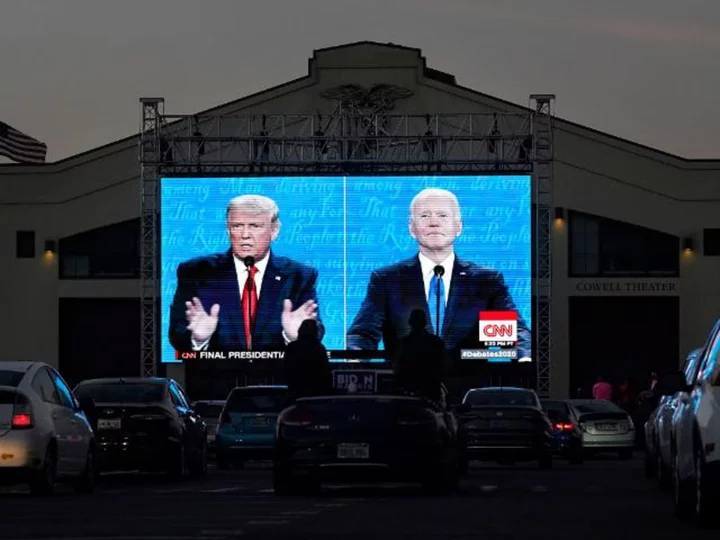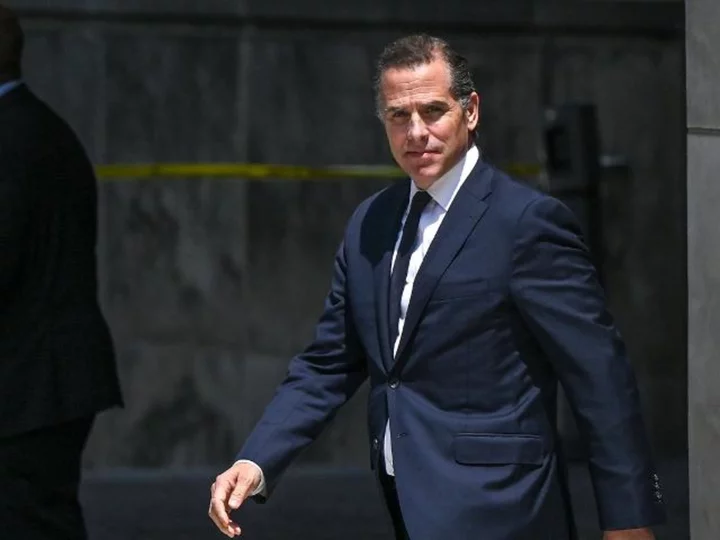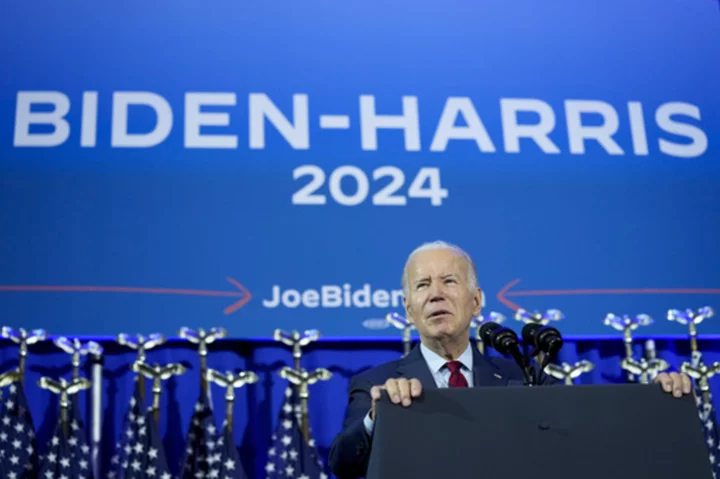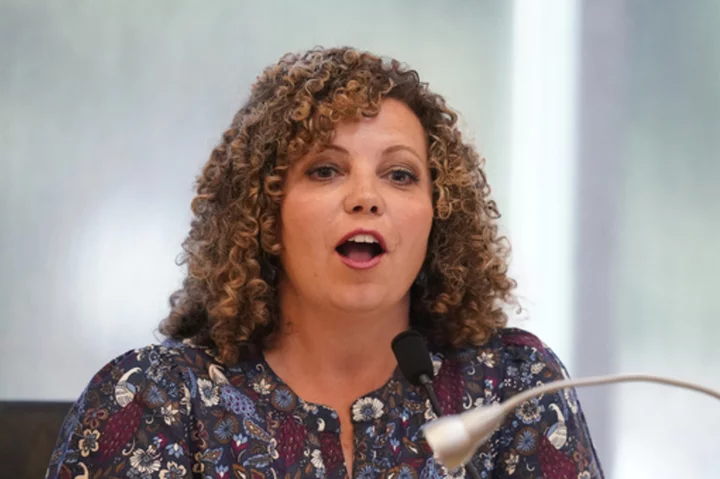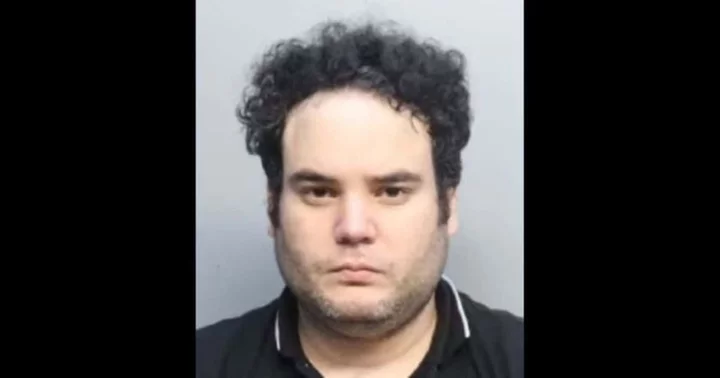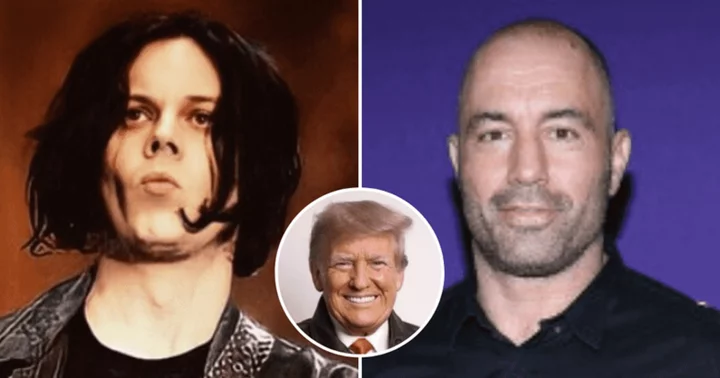The alarm bells are ringing for Democrats who look at a new CNN Poll out Wednesday.
Some key lines from CNN's report by Ariel Edwards-Levy and Jennifer Agiesta:
"...nearly half of registered voters (46%) say that any Republican presidential nominee would be a better choice than Biden in 2024.""...his job approval rating stands at just 39%. ... 58% say that his policies have made economic conditions in the US worse...""A smaller share of the public than ever now says ... that he has the stamina and sharpness to serve effectively as president (26%, down 6 points from March), with those declines driven largely by Democrats and independents..."
Read the full report.
But the fact remains that despite Democrats' obvious unease with Biden, there's no organized clamoring for someone else. Even if there was, there's not much time.
Is there time for an alternative?
There is no nationwide date by which candidates must declare their candidacies. If additional Democrats were to challenge Biden, they would do so within the 50-state patchwork party primary process. Each state has its own primary rules and deadlines. Nevada requires primary candidates to submit their paperwork by mid-October. South Carolina requires candidates to submit their paperwork in November.
But the Democratic National Committee, at Biden's behest, is currently locked in a standoff with both Iowa and New Hampshire, which for decades have held the first caucus in Iowa and first-in-the-nation primary in New Hampshire.
Biden didn't win either state during the 2020 primaries and, in an effort to reward the South Carolina primary that reignited his campaign, Democrats moved both states out of their traditional positions under national party rules. Iowa Democrats haven't yet said when their nominating process will take place and while the New Hampshire government is set on holding its primary first, a date still hasn't been announced.
The end result may be that Democrats essentially ignore Iowa's caucus or New Hampshire's primary
Biden may not even be on the ballot in New Hampshire if, as predicted, it carries forward with a January primary.
Are the alternatives?
The most visible person who is challenging Biden, Robert F. Kennedy Jr., is a noted vaccine skeptic and has pushed conspiracy theories that make him unpalatable to most voters.
The fact that notable progressives à la Sen. Bernie Sanders, the Vermont independent who has run for president twice as a Democrat, are not clamoring for a Biden alternative is tell that the motivated base on the left wing of the party is at least content with Biden's chances and his performance so far.
For every Democrat jittery about Biden, there is a Republican jittery about Trump
Anti-Trump Republicans like New Hampshire Gov. Chris Sununu are adamant that a viable Trump alternative exists.
Sununu became "animated and agitated" when CNN's Jeff Zeleny asked if Trump was on an unstoppable march to the nomination.
"Oh God no!" Sununu told Zeleny.
But none of the candidates challenging Trump have yet caught on in polling and in fact Florida Gov. Ron DeSantis has faded in recent surveys.
The idea that a Republican who is not running -- Virginia's Gov. Glenn Younkin, say -- could jump in the race and rocket to challenge Trump seems equally unlikely.
Which is why until you see someone with some name recognition and either deep pockets or financial backing seriously talk about entering the race, a believable Democratic alternative to Biden or a last-minute Republican alternative to Trump seems academic. Could it technically happen? Sure. Are there any indications it is happening? No.
What about an independent?
While navigating the party primary system might seem complicated, the advantage of utilizing it is that the main political parties, and frequently some minor ones, have a reserved slot on the general election ballot in December.
A major obstacle to an independent candidate would be to gain that ballot access in all 50 states and the District of Columbia -- or at least enough states to cobble together 270 electoral votes. Most of those filing deadlines do not arrive until later in 2024.
A national independent campaign would require staffers, fundraising and organizers. That process takes time and even some established third parties do not get on the ballot in every state.
The Libertarian Party is frequently able to get its candidate ballot access in all 50 states and the Green Party works each year to maintain the support it needs to appear on ballots. As of July, the Green Party lacked ballot access in a large portion of the country.
A nonprofit wants a spot on the ballot
The group No Labels is pushing what it calls a "2024 insurance project," by which it plans to obtain ballot access to "potentially offer" to an "independent Unity Ticket," but only "if that's what the American people want."
The moderate group is skirting election rules by obtaining ballot access as a nonprofit rather than a political party. Its nonprofit status also allows it to keep the identities of its financial backers secret, a move it has defended to protect its fundraisers' privacy and defend them from pressure to abandon the movement. It also obviously violates at least the spirit of transparency in politics and fundraising, which is not very democratic.
After publication, No Labels reached out to dispute this characterization of its efforts.
"No Labels works closely with experienced legal counsel to follow all applicable laws, including all federal and state election rules," Joe Cunningham, the group's national director, said in a statement. "Any suggestion to the contrary is a specious attempt by our opponents to stop our movement. We are proud of the important work we are doing to bring additional choices to voters across the country."
No Labels has featured West Virginia Sen. Joe Manchin, the West Virginia Democrat who is seriously considering becoming an independent, at an event in New Hampshire. Manchin has not said if he will seek reelection to the Senate, launch an independent presidential bid, or do something else entirely.
Sen. Mark Kelly, an Arizona Democrat, said on CNN's "State of the Union" last month that he has personally discouraged Manchin from running and he disparaged the No Labels effort.
"This is a few individuals putting dark money behind an organization," he said. "That's not what our democracy should be about."
What is a 'Unity Ticket?'
The term No Labels favors -- "Unity Ticket" -- suggests it would require both a Republican and a Democrat and be exciting enough to pull a sizable chunk of voters out of their partisan corners. At least right now, it's hard to imagine any person that fits that bill.
Got any ideas about who could unify the country? Let us know at what.matters@cnn.com.
Here's some more phrasing from the No Labels website: "We are simply clearing away the ballot access obstacles built by the major parties to create space for the potential nomination of an independent Unity Ticket, if that's what the American public wants."
Who's to say what the public wants? That's presumably what elections are for. The most notable No Labels figureheads include former Democratic Sen. Joseph Lieberman of Connecticut and former Republican Gov. Larry Hogan of Maryland, both moderates who moved out of step with their parties but lack national followings.
Independent and third-party candidates are bad news for incumbents
Democrats and anti-Trump Republicans have warned that any kind of moderate alternative could only help Trump. There's plenty of evidence to support that claim. Candidates who resonate outside typical Republican and Democratic bases tend to benefit the out-of-power major party candidate.
1968 -- The candidacy of George Wallace coincided with the defeat of the Democratic candidate, Hubert Humphrey, after eight years of a Democrat in the White House.1980 -- The candidacy of John B. Anderson coincided with the defeat of the incumbent president, Jimmy Carter. 1992 -- The candidacy of Ross Perot coincided with the defeat of the incumbent president, George H. W. Bush. Perot's second run in 1996 is the exception to the rule, since Perot again siphoned support from the Republican. Bill Clinton easily won reelection. 2000 -- The high water mark for the Green Party, when their candidate Ralph Nader got nearly 3% of the vote, coinciding with the loss in the electoral college of the Democratic candidate, Vice President Al Gore to George W. Bush.
This is all to say that despite frustration on both sides of the political aisle, the avenue to any serious alternatives remains very much obstructed.
This story has been updated.

